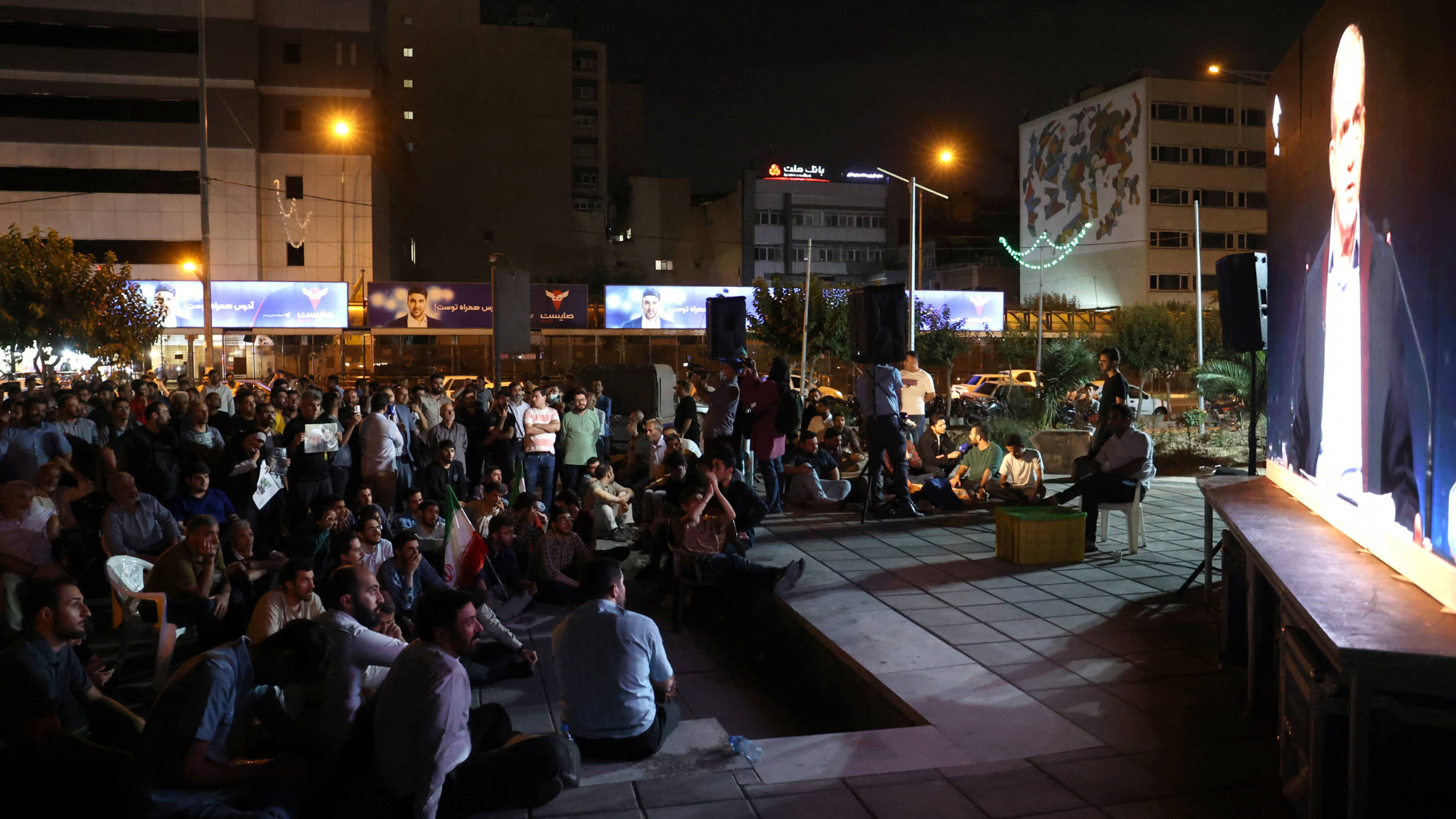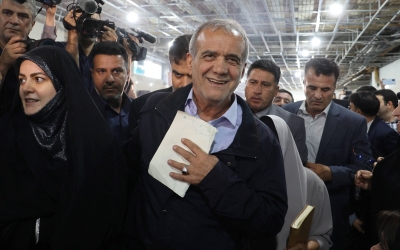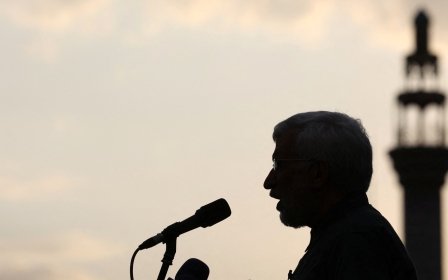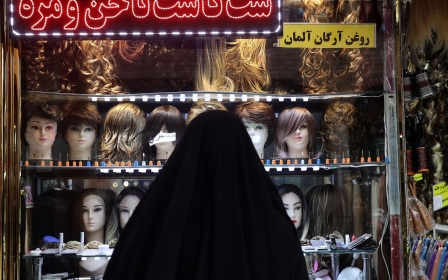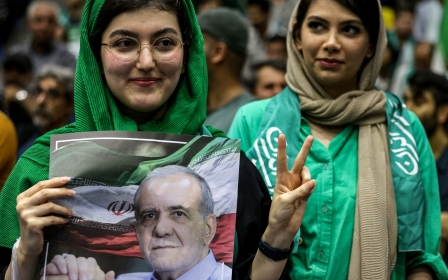Iran election: How Saeed Jalili’s refusal to quit may hand victory to the reformists
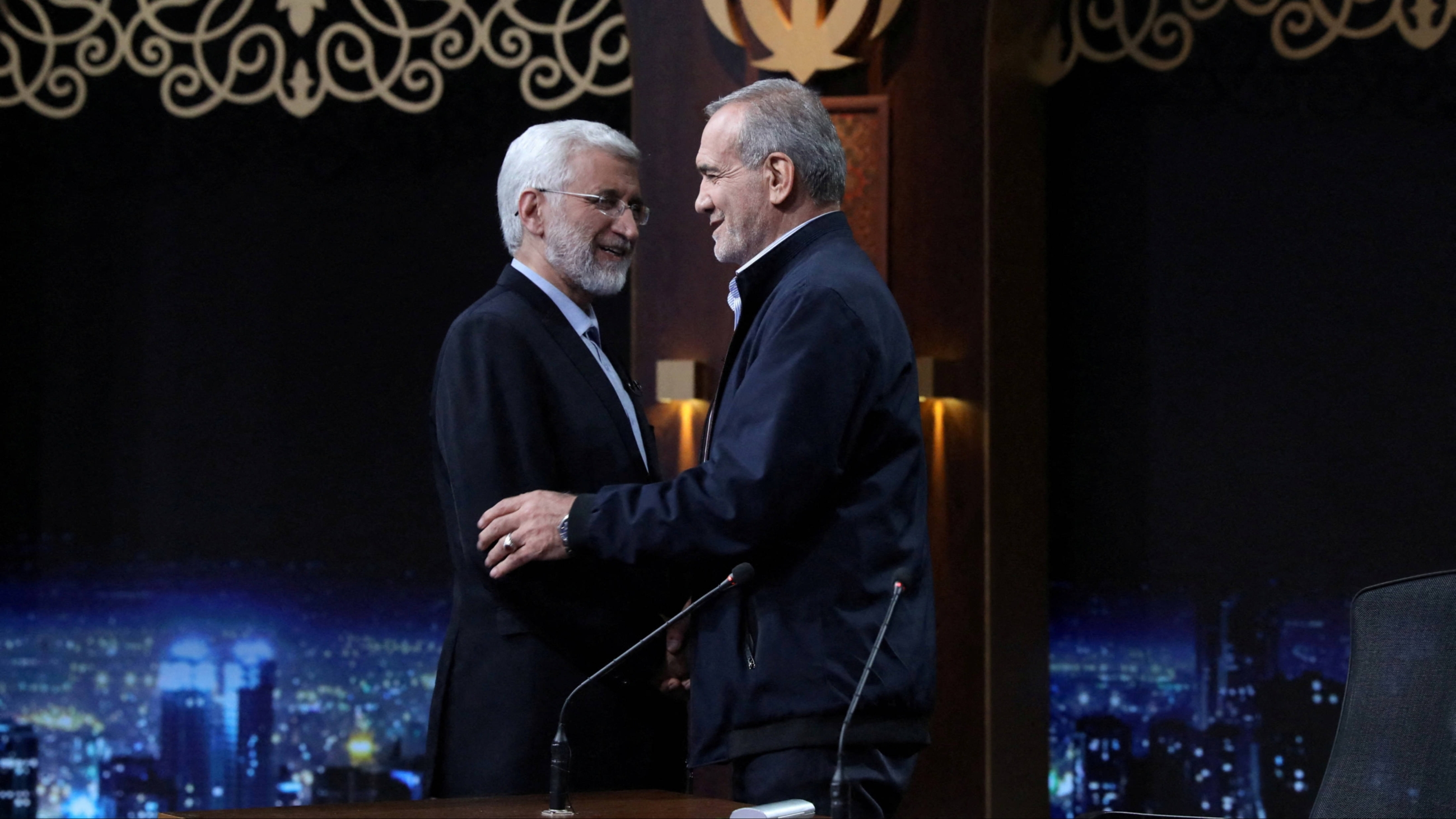
Days before Iran held a tight presidential election, two key principlist candidates failed to reach a consensus that would have strengthened the conservative camp against the sole reformist running in the race.
According to two senior conservative sources, ultra-conservative Saeed Jalili was unwilling to withdraw from the race to pave the way for candidate Mohammad Baqer Qalibaf.
The sources revealed to Middle East Eye that Ali-Asghar Hijazi, a senior official in the Supreme Leader's office, called Jalili several times to convey Ayatollah Ali Khamenei's wishes for him to withdraw. However, Jalili turned off his phone for a few days to avoid answering Hijazi's calls.
Jalili's entourage eventually advised him to attend a meeting with Qalibaf, organised by Revolutionary Guard Quds Force commander Esmail Qaani in the holy city of Mashhad. The meeting however failed to persuade Jalili to change his stance.
The ultraconservative candidate told the Quds commander to bring a letter penned by Khamenei himself to convince him to step aside in favour of Qalibaf.
New MEE newsletter: Jerusalem Dispatch
Sign up to get the latest insights and analysis on Israel-Palestine, alongside Turkey Unpacked and other MEE newsletters
Although Qalibaf has been widely perceived as Khamenei's preferred candidate, Jalili led the conservative race, leaving Qalibaf with a humiliating result of around 3.5 million votes out of 24.5 million.
Jalili, a former chief nuclear negotiator, managed to attract 9.4 million votes last Friday, while the reformist candidate, Masoud Pezeshkian, gained 10.4 million votes.
The turnout was less than 40 percent, the lowest in the history of the Islamic Republic. While the low turnout surprised observers, who had expected a higher number of reformist and moderate voters, they were also shocked by Pezeshkian's success.
Typically, when voter turnout is low, conservatives win, as their base, who see voting as a religious duty, always go to the polls. In contrast, the reformist base, comprising of secular and moderate religious people, often abstain if they believe their votes would not bring desired change.
In this election, the majority of the middle class decided to boycott the race to indicate to Khamenei that a change is needed and the Islamic Republic does not represent Iranians.
A political analyst close to the reformists told MEE that Pezeshkian's votes show he had gained the trust of a large section of conservative voters. This is alarming as it indicates the conservative base is losing trust in principlists and the Islamic Republic.
He added that Pezeshkian was also successful in attracting the votes of rural people and a small percentage of the middle class.
Saving Pezeshkian
Having amassed most of the votes without an overall majority, Pezeshkian and Jalili are now heading to a run-off election on Friday.
As the candidates press on with their campaigns for round two, reformists are increasingly concerned as Jalili and the conservatives mobilise forces to gain more supporters across Iran.
A reformist analyst told MEE that Jalili's team, with the help of seminaries, is sending clerics to rural areas and various cities to convince people not to vote for Pezeshkian.
Reformists are also concerned that up to 10 to 20 percent of Pezeshkian's voters might not participate in the runoff for various reasons, he added.
However, the analyst also said that since people, particularly the middle class who had boycotted the first round, are very much afraid of Jalili, they may come out to vote to "save Iran and Pezeshkian".
Supporter of reformists have expressed fears that Jalili's ultraconservatism and his support for restrictive social measures, especially with regards to the hijab and access to the internet, have drawn comparisons to the Taliban's rule in neighbouring Afghanistan.
Although Qalibaf has urged his base to back Jalili, some of his supporters have publicly endorsed Pezeshkian, with recent polling suggesting that around 19 percent of his votes could swing to Pezeshkian.
Jalili's campaign strategy
Delaraam, a 37-year-old architect graduate, told MEE, "I didn't vote in the first round of this election, nor have I voted in the past seven years, but now I have no choice but to vote for Pezeshkian."
She added that Jalili is "out of his mind for wanting to limit access to the global internet" and for planning to keep the morality police on the streets.
"He is also against a deal with the US over the nuclear issue, which would bring about more sanctions and hinder any opportunity for lifting sanctions," Delaraam said, using only her first name.
'I haven't voted in the past seven years, but now I have no choice but to vote for Pezeshkian'
- Delaraam
Ehsan, a dentist, told MEE, "I have managed to convince five of my friends to vote, even though they had boycotted the first round."
He added, "Four other friends of mine weren't receptive. One even got angry, telling me I'm disrespecting the memory of those who lost their lives during the 2022 protests against the Islamic Republic. He got so angry that he cursed and blocked me on his phone and Telegram."
The death of Mahsa Amini in morality police custody after being detained for allegedly flouting the mandatory hijab rule led to unprecedented protests across the country. Hundreds of protesters were killed in a brutal crackdown by security forces, and several hundred others were detained.
The establishment's violent response to the protests has led to calls for boycotting elections.
Jalili's team is now doing its best to dissuade them from voting for Pezeshkian by using the economic crisis as a scare tactic to undermine the reformist's support base according to observers.
As part of this strategy, they are spreading reports claiming that Pezeshkian plans to increase petrol prices. Such a prospect is particularly worrisome for struggling Iranians who fear it would lead to inflation and a hike in prices of other essential goods.
By stoking these economic anxieties, Jalili's team aims to shift public opinion and reduce voter turnout for the reformist candidate in the upcoming election.
Middle East Eye delivers independent and unrivalled coverage and analysis of the Middle East, North Africa and beyond. To learn more about republishing this content and the associated fees, please fill out this form. More about MEE can be found here.


